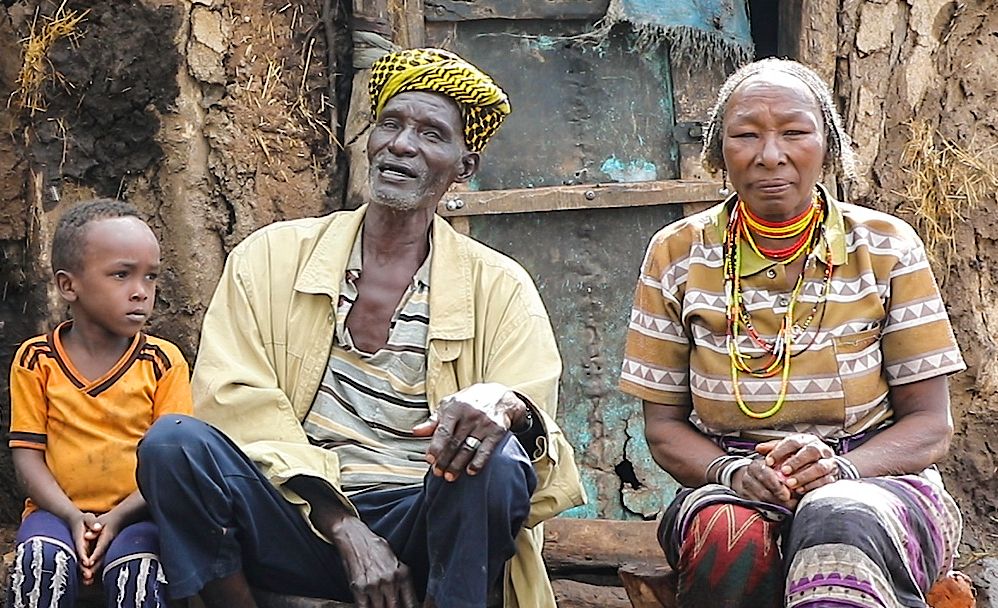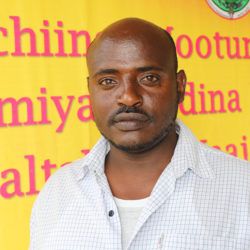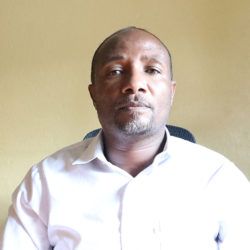 Stories
Stories
June 30, 2021 • 3 min read
88-year-old grandfather, Aleka Kutera, lives in Teletele District in Oromia Region, Ethiopia. He is a mixed farmer who keeps cattle. Aleka is a senior and respected figure in his village and a great storyteller.
In his younger life, desert locusts came once every ten to fifteen years. The threat of locusts is now worse than ever.
“I’ve seen many things in my life. The locust swarm was a disaster which rarely happened in the old days. But now it’s coming year after year, and we are confused about what to do,” Aleka says.
Invasion of the swarm
The 2020 swarm was unique and aggressive, Aleka says. It destroyed everything in its wake, invading entire districts. When the locusts swarmed his village, farmland was destroyed leaving worthless bush and grazing land.
The impact of the locust swarm forced Aleka’s family to try to relocate their cattle to a less damaged area, but they had nowhere to go. During the swarm invasion, the local administration gathered teams and partners to try and control the locusts, and to assess the magnitude of the damage. GOAL was there to provide the required support.
Engida Yohans, Crop Production and Protection Team Head of this group, said: “It happened unexpectedly so it shocked the community. GOAL is like a family member to our community and our office, hence we called them when things were out of control. GOAL provided the logistics, manpower, and financial assistance to control and assess the damage.”

Aleka tells the story of the desert locust for his family and neighbours
Support provided to the community
Usually, people come to Aleka to draw on his wisdom and experience and to get advice in hard times. But Aleka also needed support to survive that difficult period.
“GOAL’s support came in a decisive period. It helped us not only to survive and provide for our families right away, but also to buy seed and farm for the next season. We are thankful for what GOAL did for our community.”
Collaborating with the local administration, GOAL teams supported Aleka and other vulnerable members of communities to buy food, goats, seed and other items.
Breaking the cycle

Engida Yohans, Crop Production and Protection Team Head in Teltele district
Engida Yohans believes a sustainable mechanism should be put in place to control and minimise the impact of the desert locusts in the future. If not, the community will live in the same cycle of devastation.
“We have to train people about cultural and scientific ways of controlling the locusts to protect farmland from destruction. A focal person needs to be assigned with access to technology such as a smartphone with GPS, to locate and report whenever the locusts pop up in the villages. We need the support of GOAL and other aid organisations for this,” Engida says.
Thankfully, Aleka’s village is recovering, and the farmlands are becoming green again with the new season crop.

Mulat Kassa, Assistant Program Manager, at GOAL Borena’s program
Mulat Kassa, Assistant Programme Manager with the GOAL Borena programme, says “We are able to support the community because of the generous support from European Union Humanitarian Aid. But the task is far from over. We have to empower the community to be resilient, and to control the swarm and protect farmland if the locusts keep on coming in the future.”
You can support this work and other projects of our country teams by joining our 2021 GOAL Mile run this year!
